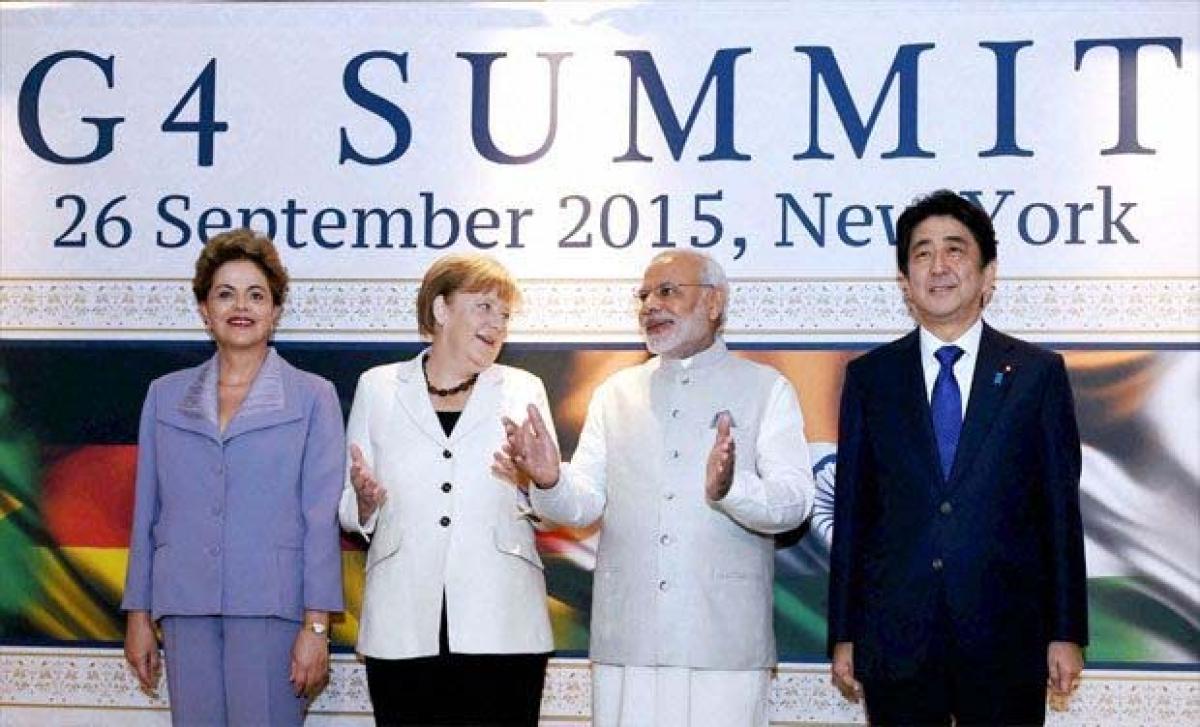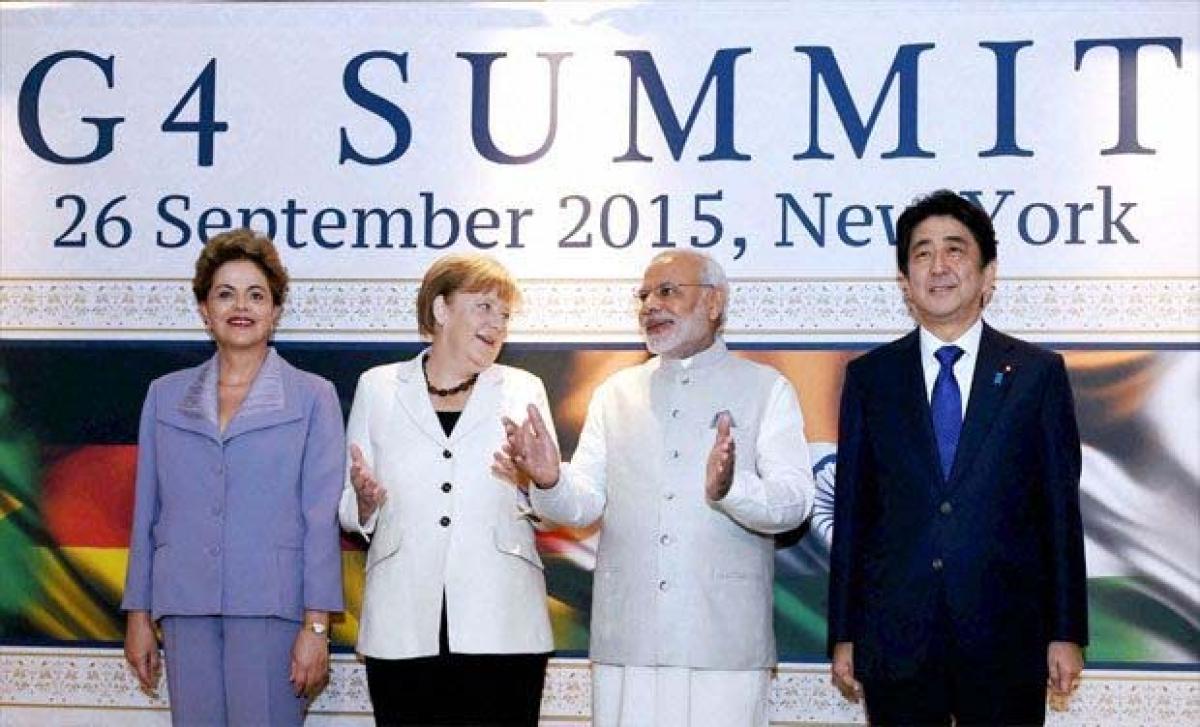Live
- Horoscope for November 28: Decoding Cosmic Clues for All Zodiac Signs
- Aishwarya Rai Bachchan’s Sister-in-Law Shrima Rai Shares Cryptic Post After Taking a Dig at Her
- Karnataka: Congress ministers indulge in lobbying ahead of Cabinet reshuffle
- Sujata joins duty after Odisha govt rejects leave extension
- Tur, urad prices have fallen in last 3 months: Govt
- NASA Alert: 130-ft Asteroid 2024 WQ2 Racing Past Earth at Over 62,000 km/h – Should We Be Concerned?
- What is UNSC Resolution 1701 and How it Relates to the Israel-Lebanon Ceasefire
- CM Mohan Majhi reviews preparedness at BJP state office ahead of PM Modi's visit
- Foods that boost the brain and sharpen memory
- Lisandro Martinez available for selection against Bodo/Glimt confirms Amorim
Just In

x
Highlights
Prime Minister Narendra Modi pressed for UNSC reform within a \"fixed timeframe\" in the current session of the UNGA, saying the world body reflects the mindset of a century \"we left behind\" and is not in tune with new concerns like terrorism and climate change.
Prime Minister Narendra Modi pressed for UNSC reform within a "fixed timeframe" in the current session of the UNGA, saying the world body reflects the mindset of a century "we left behind" and is not in tune with new concerns like terrorism and climate change.

Hosting a Summit of leaders of Germany, Japan and Brazil under the G-4 format here, he said the UNSC "must include the world's largest democracies, major locomotives of the global economy, and voices from all the major continents" to carry "greater credibility and legitimacy".
It will make it more representative and effective in addressing the challenges of the 21st century, he said at the Summit meeting with Germany Chancellor Angela Merkel, Japanese Prime Minister Shinzo Abe and Brazilian President Dilma Rousseff, the first since 2004.
Modi noted that "some movement" had been witnessed recently in the decades-old endeavour when the UNGA took the "significant step" to commence text-based negotiations on the reforms but said it has to be taken to its logical conclusion during the current 70th session of the global body.
"Our institutions, approaches, and often mindsets, reflect the wisdom of the century we have left behind, not the century we live in. This is especially true of the United Nations Security Council," the Prime Minister said.
"The reform of the Security Council within a fixed time frame has become an urgent and important task," he said, while talking about the modern age challenges like trends in demography, urbanization and migrations. "Climate change and terrorism are new concerns. Cyber and Space are entirely new frontiers of opportunities and challenges, he said.
G-4 is a grouping, which has been jointly pushing for reform of the UN Security Council to make it broad-based by including them as permanent members.
The Prime Minister, while making initial remarks, pointed out that the subject of reforms in the UNSC has been the focus of global attention for decades but "unfortunately, without progress" so far.
"We live in a fundamentally different world from the time the UN was born. The number of Member States has grown four-fold. Threats to peace and security have become more complex, unpredictable and undefined," Modi said.
"We live in a digital age. The global economy is changed, with new engines of growth, more widely dispersed economic power and widening wealth gap," he said, adding "In many ways, our lives are becoming globalized, but fault-lines around our identities are growing."
He referred to the recent decision of the UNGA to commence text-based negotiations on UN reforms and said, "after decades, we finally see some movement. The 69th Session of the General Assembly has taken a significant step forward".
At the same time, he said, "this is just the first step. We should aim to take this process to its logical conclusion during the 70th session."
Talking about G-4, he said, "Our Group of four countries came together in 2004, bound by our shared commitment to global peace and prosperity, our faith in multilateralism and our willingness to assume our global responsibilities that the world expects from us."
In her remarks, Merkel said the G-4 was not any "exclusive group" and it believes in taking others also along in its pursuit of ensuring reform of the UNSC.
Abe, while terming the meeting as a "golden opportunity", said there was a "mounting momentum for change" and "voices of great nations should be heard". Rousseff also underlined the need for urgent reform of the world body.

Next Story
More Stories
ADVERTISEMENT
© 2024 Hyderabad Media House Limited/The Hans India. All rights reserved. Powered by hocalwire.com







